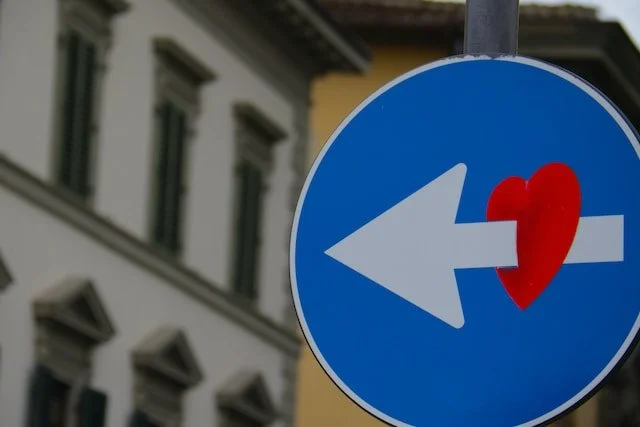5 ways the world would be worse without Christianity: Sharon James with an excellent rebuff of this cultural push-back, “Christians are instructed to “check their privilege” and “do the work” to repudiate Christianity’s toxic legacy. But what would the world really be like without Christianity?”
How Asian artists picture Jesus’ birth: I just loved these pieces that are so different from Western portrayals.
A church is not just a truth-dispensing center: Sam Allberry and Ray Ortlund conclude, “Our love for one another is not only meant to be clearly observable by the watching world. It’s to be so strikingly Godlike that it cannot be explained except by the reality of the gospel. The gospel doctrines of the incarnation (“you sent me”) and of justification (“and loved them”) will become more visible and nonignorable through the love we show one another in Christ.”
This Week's Recommendations
Candlelight: Scott Schuleit considers candlelight and Jesus’s birth, “And further back in the sanctuary, something was veiled, hidden—a single, tiny radiating spot of fire, a whisper from heaven, perfect convergence of candle and flame. The uniqueness of its presence swallowing up a sense of the vastness of space as if all eternity, the great weight of it, stood hushed, gazing.”
Five myths about mental health: Tom Karel begins, “Mental illness. For many, that is a scary term. ‘You have a mental illness.’ This statement borders on terrifying! It brings up many unsettling thoughts and complicated fears in our hearts and minds. This subject is further confused by the many differing opinions swirling around the internet. Moreover, in the post-Christian era in which we live, Christians may wonder if the advice they find is true, scientific, or Biblical?”
This Week's Recommendations
Strength and support: addressing domestic abuse within the church: Chris Moles suggests, “In the journey to healing from domestic abuse, it’s important to recognize the importance of God’s church and the community of believers. We are not designed to struggle alone. This community can provide survivors with spiritual, emotional, and practical support as they seek to escape the cycle of abuse and rebuild their lives.”
5 reasons not to follow your heart: Thaddeus Williams explains, “Under the trendy orthodoxy of expressive individualism, life is no longer about bringing our inner selves into the tempo and key of beauty, goodness, and truth. It’s about finding our own inner tune, marching to our own beat, and conducting those around us to play along with our anthems of autonomy.”
This Week's Recommendations
What are people of no faith looking for in faith conversations? Barna reports, “In our survey, responses are clear: The top thing people look for in a conversation with a Christian is that they “listen without judgment.” People of no faith are also hoping for honesty about questions and doubts, and they don’t want forced conclusions. The best learning environment, they express, is one marked by care and consideration.”
Contributing factors to a crushed spirit according to Proverbs: Lee Lewis evaluates what causes a crushed spirit and offers hope. “Proverbs offers much more than a simple diagnostic to help discern the crushed in spirit. The book offers wisdom for helping a person see the different criteria and contributing factors that can lead to a crushed spirit.”
The Gift of Your True Face (With a Free Gift)
When our son was a child, he had an intense fear of anyone in a mask. I’ve since learned that there is actually a diagnosis called masklophobia for those who have an extreme fear of those in masks. Such a fear is understandable. A child might subconsciously wonder, “why is this person wearing a mask?” “Who is the real person behind the mask?”
In a world where trust is fragile, masks heighten the challenge of earning trust.
And yet we wear them all the time. The little boy slips on a Spider-Man mask because he wants to pretend that he is strong and fast. The little girl puts on a crown because she wants to imagine that she is beautiful and powerful.
Will You Forgive Me for My Cowardice?
.In the last post I confessed my sin of narcissism. It’s true, I can be a selfish and self-serving leader.
If it were only so easy to defend ourselves against sins from one direction. One of my favorite little leadership books to come out in the past few years has been Trevin Wax’s The Multi-Directional Leader. Wax’s thesis is simple: most leaders are only concerned about threats that come from one direction, but any shepherd knows that threats come from all sides. A wise leader is aware not just of one threat from one direction, but many threats from many directions.
This Week's Recommendations
Preparing children to suffer well: Curtis Solomon with an excellent article. This is a must-read for any parent or grandparent. “We don’t have to wait until trauma strikes to prepare the hearts of our children to face the most intense forms of suffering. There is no way to completely protect our children from suffering in this world, and we can’t guarantee they won’t face lasting challenges from traumatic experiences, but the following measures can help our children be prepared to respond well to suffering.”
Let suffering lead to gentleness, not bitterness: Lara D’Entremont in a similar vein, “Gentle people aren’t gentle because they simply bottled all their frustration and anger inside. A gentle spirit isn’t cultivated through gritted teeth, clenched fists, and a strained smile. Gentleness grows in a heart set on this truth: the Lord is near (Phil. 4:5b)”
Would You Forgive Me for My Narcissism?
In the ancient myth, the hunter Narcissus was acclaimed for his beauty. Many sought Narcissus romantically, but he spurned them all. One day on a hunt, Narcissus paused to rest by a pool of water, stooping for a drink, he caught sight of his own reflection. He fell in love with his reflection and stayed by the pool staring at himself for the rest of his life.
The American Psychiatric Association defines narcissistic personality disorder as, “a pattern of need for admiration and lack of empathy for others. A person with narcissistic personality disorder may have a grandiose sense of self-importance, a sense of entitlement, take advantage of others or lack empathy.” Do you have some narcissism in you? I do.
This Week's Recommendations
Thankfulness (and other habits): Marli Scarborough says our gratitude is tied to our identity, “So when [Paul] says “don’t BE anxious,” he’s not saying “don’t FEEL anxious,” or “don’t have anxiety.” He’s saying that anxiety doesn’t have to be your identity. Your identity is in Christ. Joy and gentleness and peace are already yours for the taking.”
Before you gather, mourn your sin: Paul Tripp offers a surprising recommendation for how to make your Thanksgiving special. He begins, “Blessed are those who mourn, for they shall be comforted” (Matt. 5:4). We don’t tend to like to be sad. We hate bad news. We work to avoid problems. We apologize when we cry in public. Being depressed scares us. In our avoidance of sadness, we often numb ourselves to death with endless social media fluff and vacuous Netflix entertainment.”
The Danger of Ingratitude
There is a deadly toxin that contaminates the air we breathe. It’s a poison that, if we are aware of it at all, seems innocuous to us both because everyone else is breathing it in, and as far as we’re aware of it, others are breathing more of it in than us.
The poison is ingratitude. And it is everywhere.
Everything (that I don’t have) is Awesome
Psychologists agree that social media has made us less happy. Why is that? Because the constant access into others’ lives taps into our propensity toward ingratitude. We are surrounded by neighbors with nicer cars, friends who take better and longer vacations, couples who are happier, and everyone seems to be fitter and better dressed than we are. And it’s all there for us to see tucked into that powerful, shiny rectangle in our pockets. Every minute of every day.














